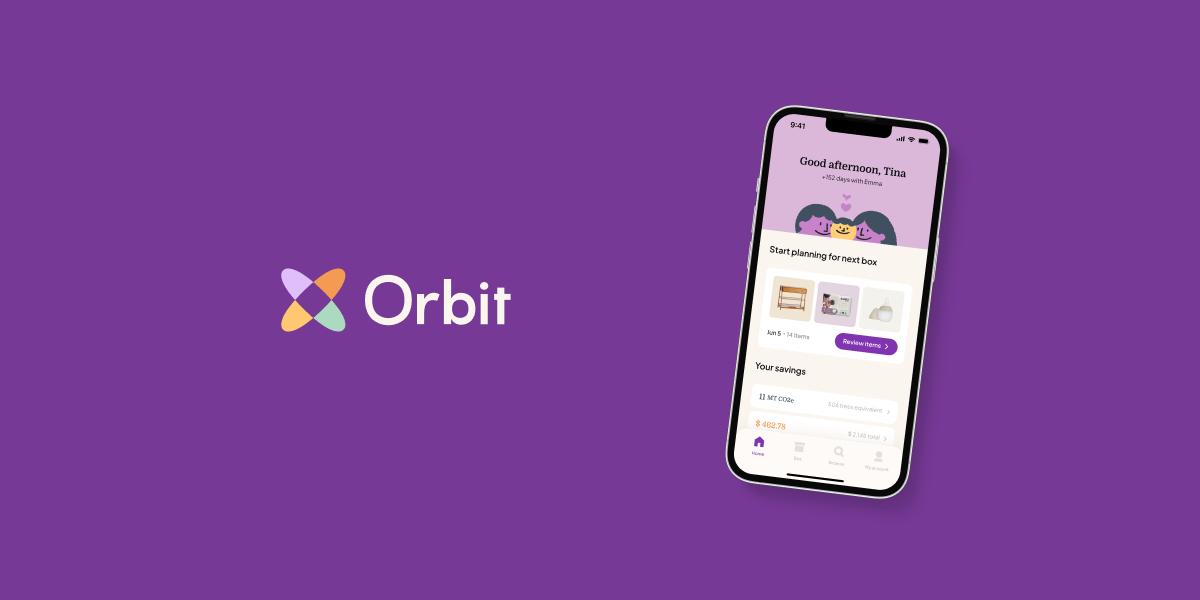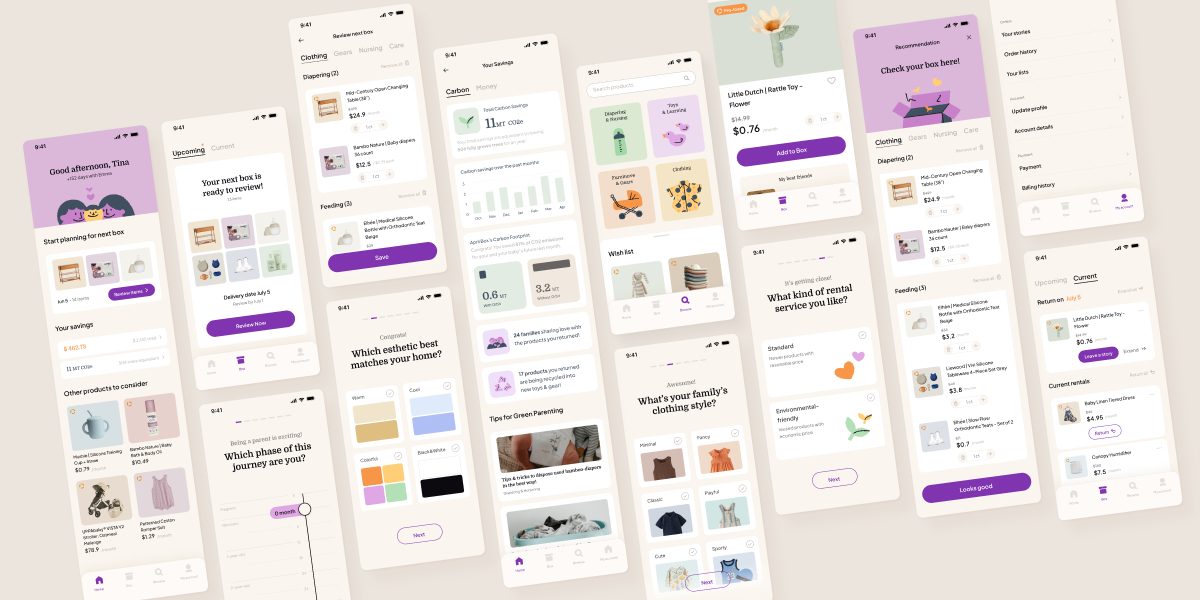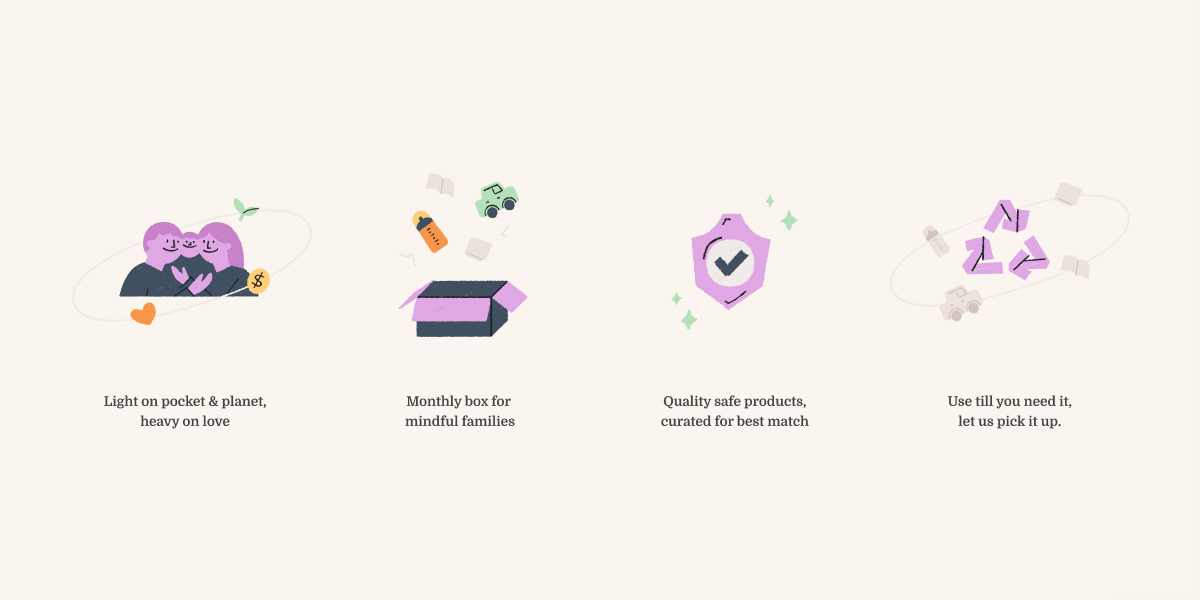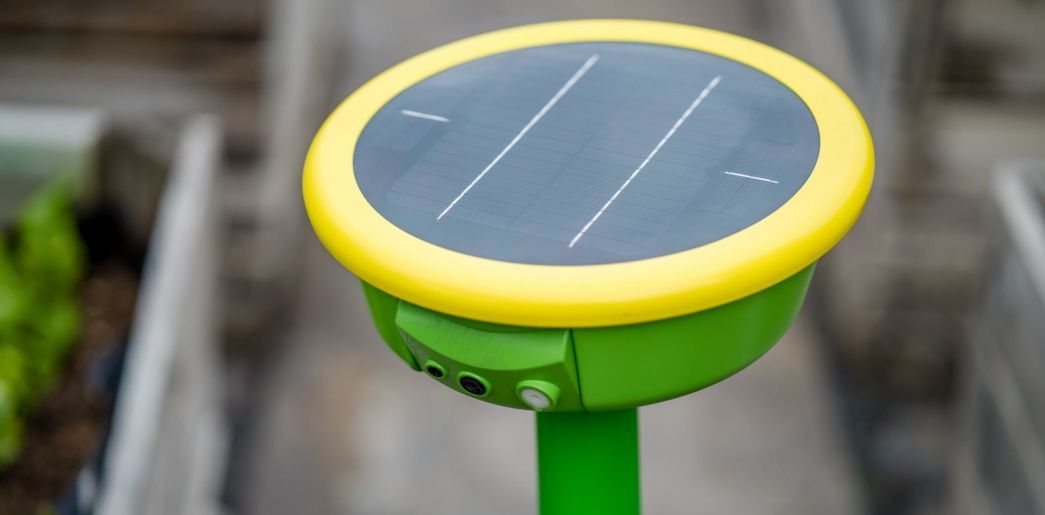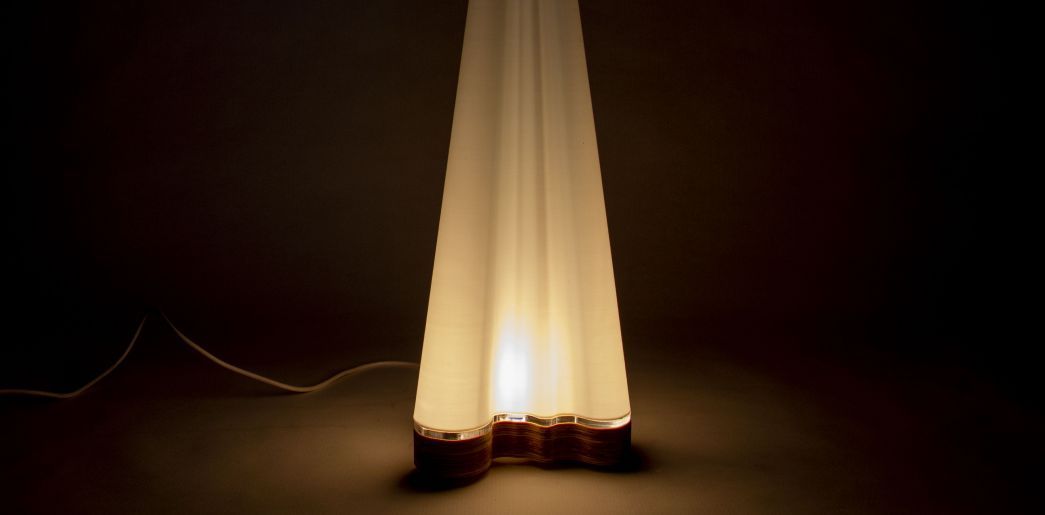AWARD YEAR
2023
CATEGORY
Home
GOALS
Good Health & Well-being, Decent Work & Economic Growth, Responsible Consumption & Production, Climate Action, Innovative Financial System
KEYWORDS
eco-parenting, carbon neutral, sustainability, sharing economy, service design
COUNTRY
United States of America
DESIGNED BY
Laura Pedrosa; Lokesh Fulfagar; Youngryun Cho; Wei-Chieh Wang
WEBSITE
https://www.figma.com/proto/dCoxFzRkBfiO1RVHuCtCn0/Project-Files?page-id=1834%3A8691&node-id=2566%3A28997&viewport=-2157%2C2907%2C0.2&scaling=min-zoom&starting-point-node-id=2566%3A28997
Orbit
Orbit--an easier, cheaper, and greener way of parenting.
How does it work?
Orbit is an easier, cheaper, and greener way of parenting. Born out of a design studio course at Carnegie Mellon University guided by Peter Scupelli & Arnold Wasserman, it is an app-based service that promotes sustainability amongst new parents by making it an easier & viable option through rental & sharing economy. Hand-picked reusable & sustainable products are delivered monthly, personalized to baby’s needs as per their age & style. When the child outgrows them, Orbit picks them up & passes to the next family along with a pre-loved story after certified cleaning & safety checks. Life transition phases like becoming new parents are challenging & at the same time, researched to be the most impactful for behavior change. Orbit leverages this intervention point by easing parents’ lives with the right products for the right time at a fraction of price while instilling an eco-friendly mindset. The novel concept also won the prestigious SF Design Week Award 2022 in the student category.
Why is it needed?
Humans are using 173% of the resources that Earth produces in a year. At this rate, we would need 5 Earths to sustain current life but we only got 1. Just using renewable energy & green products is not enough. 60% of the emissions are from constant buying & owning. We need to reduce this consumption which is difficult given the increasing population. So we need to share—shifting from consumerism to sharing economy, from ownership to rentals. But this shift is hard since ownership is the status quo & sustainability is an afterthought. We need a point of intervention that allows behavior change & makes sustainability easier & viable. Hence, we focus on new parents as the research suggests life transition phases are the most impactful periods for behavior change. Moreover, having a baby, while very meaningful, is also challenging, expensive, and one of the most wasteful phases of life. A baby in the US contributes 58.6MT of CO2 per year which is more than 3.5 times an average US adult.
How does it improve life?
Orbit saves parents money – rental service enables parents to use baby products while they need them at a lower price. Orbit saves resources – the rental system promotes a circular economy that reduces undesirable wastes by making products’ life cycles longer. Orbit saves parents time & efforts – it recommends sustainable or carbon-neutral products based on baby’s growth & parents’ preferences in a timely manner. This solves priority issues parents have in making purchasing decisions in the midst of baby sitting, educating, working, and housekeeping. Orbit contributes to the reduction of carbon footprint – consuming carbon-neutral disposable products, and repairing and reusing durable products minimizes the carbon footprint from the manufacturing process. Orbit connects community – by handing over the love from previous families to the next through the ‘pre-loved’ stories attached to the products, it spreads the love and strengthens communities.

